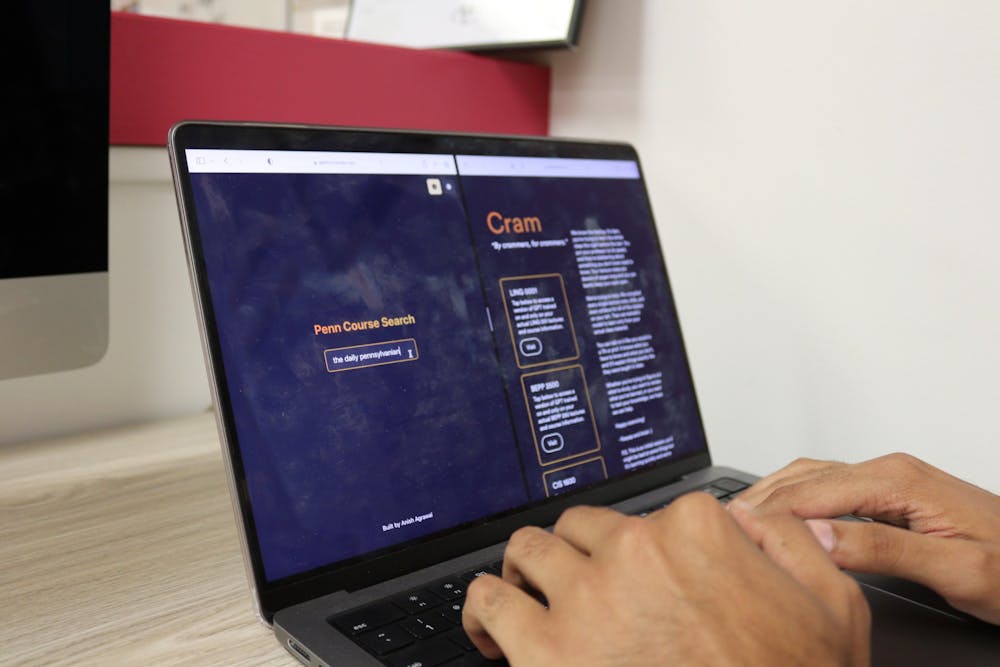Two new GPT-powered websites, CramGPT and Penn Course Search, were recently introduced to the Penn community.
Penn Course Search, created by Engineering sophomore Anish Agrawal, is a search engine for the Penn course catalog powered by artificial intelligence. CramGPT, created by Agrawal and Engineering sophomore Kasyap Chakravadhanula, is a chatbot which is trained on course notes and recordings.
Within a few days of the release of CramGPT, the LinkedIn post announcing its launch garnered over 200,000 impressions, and the website itself accumulated 2,000+ active users.
Agrawal said the websites were the product of his interest in GPT technology and his personal experiences at college, causing him to initially create Penn Course Search.
“My first project was actually the search engine [Penn Course Search],” Agrawal added. “There was nowhere I could search for courses other than Path, which is not great. Even if you forget the zero in a course code, it doesn't know where it is. That’s when I thought that we need a better search engine.”
Agrawal used embeddings from OpenAI’s API, as well as vector similarity matching, to achieve his goal. Inspired by the success of the search engine, he started to explore other applications of the technology.
“One late night, I was cramming for STAT 431, and I had no clue how to do it,” Agrawal said. “I quickly uploaded all my STAT 431 PowerPoint files and wanted to be able to look up stuff. I played around with it, and it really helped me search stuff really fast.”
He said he then showed it to a few of his friends, which inspired him and Chakravadhanula to create it into a website — CramGPT. Chakravadhanula said that something that started off useful for himself and Agrawal quickly became a tool for broader us.
RELATED:
80% of U.S. workforce will be affected by GPTs, Penn research finds
In absence of University-wide guidance, Penn professors vary approaches to AI in academics
“Balancing it with school wasn’t easy, but we were just so excited by what it could do," he said.
The immense reaction from the Penn community, in Agrawal’s opinion, was indicative of the lack of development in these fields from Penn.
Agrawal and Chakravadhanula have received offers of funding from several venture capitalists and are hoping to speak with the Penn administration about their technology. Before expanding, their current focus is on optimizing the technology and maximizing its impact on the Penn community.
“Right now, we are trying to make it something that everyone at Penn uses, since we have democratized this huge corpus of information that earlier everyone may not have had access to,” Agrawal said. “Once we have even thirty percent of campus using this regularly, we have an argument to ask Penn to sponsor us.”
Agrawal said that, going forward, he and Chakravadhanula are working on integrating their tools with applications such as Canvas and Coursera, as well as an ambassadorship program to bring the tools to additional universities.









